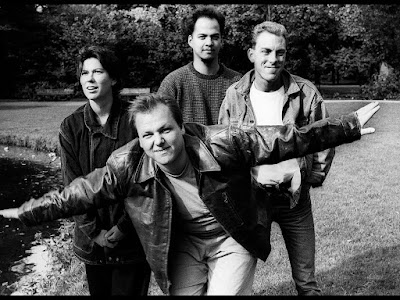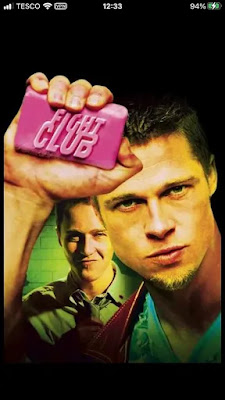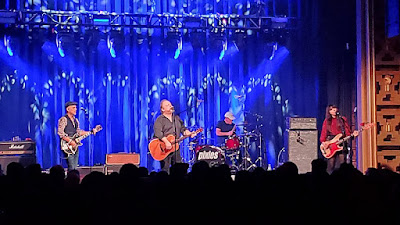I was inspired by a podcast called The 500 hosted by Los Angeles-based comedian Josh Adam Meyers. His goal, and mine, is to explore Rolling Stone Magazine's 2012 edition of The 500 Greatest Albums of All Time.
Album: # 317
Album Title: Surfer Rosa
Artist: Pixies
Genre: Alternative Rock, Art Punk, Post-Punk
Recorded: 2 Studios, Boston, Massachusettes, U.S.A.
Released: March, 1988
My age at release: 22
How familiar was I with it before this week: 1 Song
Is it on the 2020 list? Yes, #390 - dropping 63 spots
Song I am putting on my Spotify Playlist: Where Is My Mind?
Surfer Rosa, the debut studio album from Boston-based, alternative rock band, Pixies, was released in the spring of 1988. I was in university and working at a local pizza joint as a bartender and server. The crew with which I worked and socialized were into more conventional rock fare. Consequently, this is not a record that made its way to my radar. |
| Matches - one of the few relics from my pizza gig (1988) |
Surfer Rosa is not an easy listen. It can be jarring and abrasive at times. However, if I had discovered it sooner, I probably would have enjoyed it for its mix of musical styles. Some of it is raw and unbridled, while other tracks are hauntingly melodic. The lyrical content is dark and often disturbing, leaning heavily on themes of Catholic repression. They mirrored my fascination with the macabre in my late teens and early twenties. |
| Pixies (1988) Francis, Deal, Lovering & Santiago |
Formed in the mid-80s, the Pixies comprised songwriter, vocalist and guitarist Black Francis (born: Charles Thompson IV); bassist and vocalist Kim Deal; drummer David Lovering; and lead guitarist Joey Santiago.
They emerged as part of the blossoming alternative rock scene in the northeast United States, drawing on elements of punk and surf rock. Their dynamic structure of music writing has been dubbed "loud-quiet-loud". It was an evolutionary step in soundscapes as the band took the thrashing anger found in hardcore punk and delivered it in controlled, strategic bursts, offset by more melodic sections of quiet restraint.

Although I had heard the name of the group in conversation, I wouldn't discover the band until long after their 1993 break-up. The song, Where Is My Mind? from Surfer Rosa, brilliantly serves as the audio backdrop to the explosive final scene in the 1999 film Fight Club.  |
| Movie Poster for Fight Club |
In 2004, the band reunited for an extensive and wildly successful world tour -- with ticket sales exceeding $14 million. In 2013, Deal left the group and was replaced by bassist Paz Lenchantin. This past February, Francis revealed he had more than forty songs already written for an upcoming record. .jpg) |
| Pixies performing live (2019) |
We will return to Pixies in about two years with album #227, Doolittle. Until then, Surfer Rosa will certainly make up for lost time with many spins as gyms reopen. I suspect it will serve as motivational work-out music. Loud-quiet-loud – sounds that are perfect for interval training on the elliptical.



.jpg)



No comments:
Post a Comment